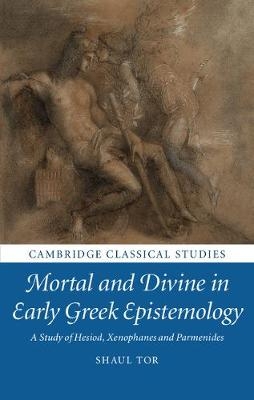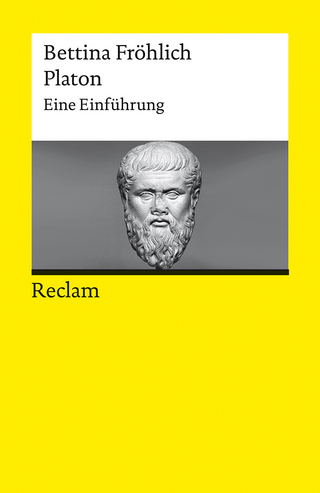
Mortal and Divine in Early Greek Epistemology
A Study of Hesiod, Xenophanes and Parmenides
Seiten
2017
Cambridge University Press (Verlag)
978-1-107-02816-6 (ISBN)
Cambridge University Press (Verlag)
978-1-107-02816-6 (ISBN)
This book explores how different forms of reasoning and of divine disclosure played equally integral and harmonious roles in the emergence of systematic epistemology in archaic Greece, and particularly in Hesiod, Xenophanes and Parmenides. Provides a fresh perspective on long-standing questions of rationality and irrationality, philosophy and religion.
This book demonstrates that we need not choose between seeing so-called Presocratic thinkers as rational philosophers or as religious sages. In particular, it rethinks fundamentally the emergence of systematic epistemology and reflection on speculative inquiry in Hesiod, Xenophanes and Parmenides. Shaul Tor argues that different forms of reasoning, and different models of divine disclosure, play equally integral, harmonious and mutually illuminating roles in early Greek epistemology. Throughout, the book relates these thinkers to their religious, literary and historical surroundings. It is thus also, and inseparably, a study of poetic inspiration, divination, mystery initiation, metempsychosis and other early Greek attitudes to the relations and interactions between mortal and divine. The engagements of early philosophers with such religious attitudes present us with complex combinations of criticisms and creative appropriations. Indeed, the early milestones of philosophical epistemology studied here themselves reflect an essentially theological enterprise and, as such, one aspect of Greek religion.
This book demonstrates that we need not choose between seeing so-called Presocratic thinkers as rational philosophers or as religious sages. In particular, it rethinks fundamentally the emergence of systematic epistemology and reflection on speculative inquiry in Hesiod, Xenophanes and Parmenides. Shaul Tor argues that different forms of reasoning, and different models of divine disclosure, play equally integral, harmonious and mutually illuminating roles in early Greek epistemology. Throughout, the book relates these thinkers to their religious, literary and historical surroundings. It is thus also, and inseparably, a study of poetic inspiration, divination, mystery initiation, metempsychosis and other early Greek attitudes to the relations and interactions between mortal and divine. The engagements of early philosophers with such religious attitudes present us with complex combinations of criticisms and creative appropriations. Indeed, the early milestones of philosophical epistemology studied here themselves reflect an essentially theological enterprise and, as such, one aspect of Greek religion.
Shaul Tor is a Lecturer in Ancient Philosophy in the Departments of Classics and Philosophy at King's College London.
Introduction; 1. Rationality and irrationality, philosophy and religion; 2. Hesiodic epistemology; 3. Xenophanes on divine disclosure and mortal inquiry; Introduction to the chapters on Parmenides; 4. Why did Parmenides write Doxa?; 5. How could Parmenides have written Alêtheia?; 6. Retrospect and prospect; Appendix: The trajectory of the kouros' journey and eschatological topography in Parmenides: some inconclusive remarks.
| Erscheinungsdatum | 24.11.2017 |
|---|---|
| Reihe/Serie | Cambridge Classical Studies |
| Verlagsort | Cambridge |
| Sprache | englisch |
| Maße | 145 x 223 mm |
| Gewicht | 630 g |
| Themenwelt | Geisteswissenschaften ► Philosophie ► Philosophie Altertum / Antike |
| ISBN-10 | 1-107-02816-7 / 1107028167 |
| ISBN-13 | 978-1-107-02816-6 / 9781107028166 |
| Zustand | Neuware |
| Haben Sie eine Frage zum Produkt? |
Mehr entdecken
aus dem Bereich
aus dem Bereich
was die alten Denker über den Sinn des Lebens wussten
Buch | Hardcover (2023)
edition a (Verlag)
26,00 €


